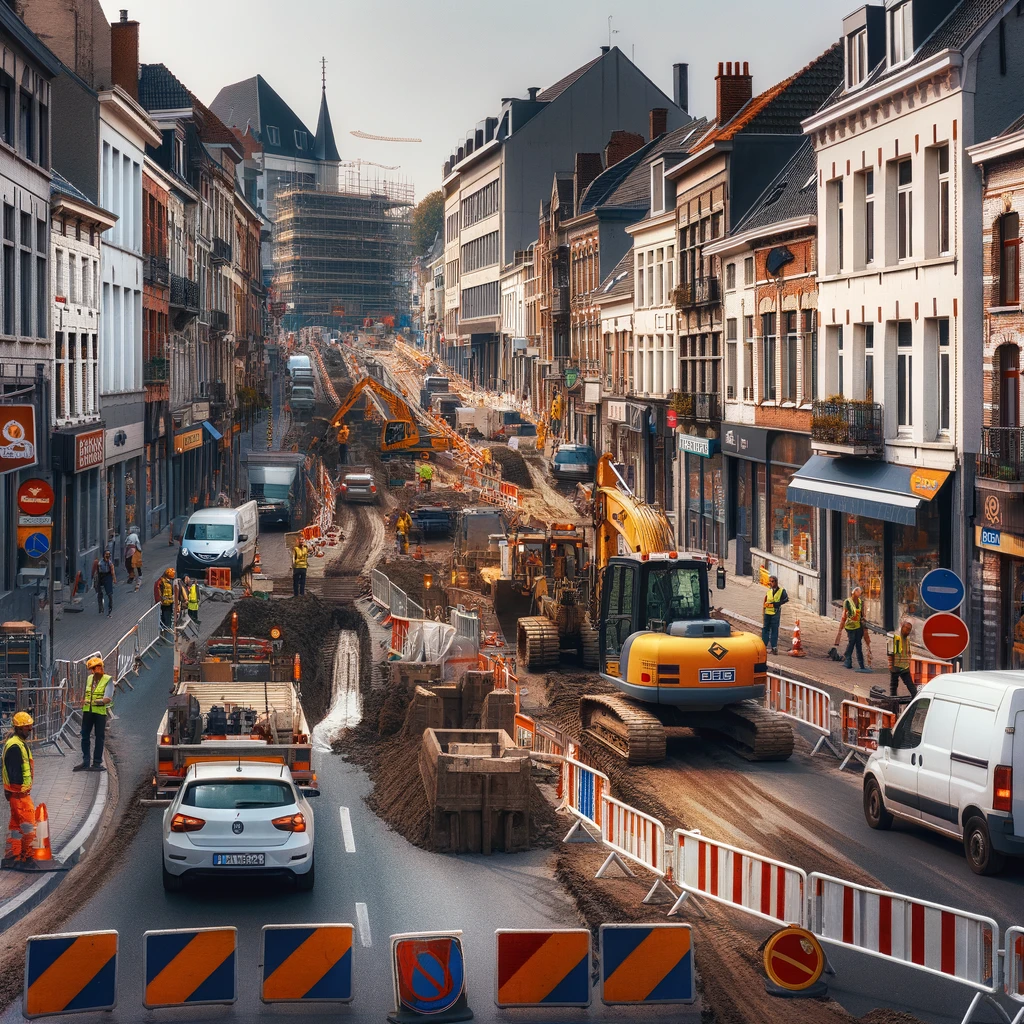There are many major infrastructure projects in the pipeline.
In Flanders there is growing dissatisfaction with the lengthy process of street repair, which leads to closed streets, inaccessibility for entrepreneurs and considerable inconvenience for residents. Despite the need for maintenance and improvement of the infrastructure, these projects often cause long-term disruption. Well-planned diversions and temporary traffic measures can help manage traffic flow and reduce congestion.
An example is the work in Wondelgem that demands the utmost from the residents. The Evergemsesteenweg is completely closed, from Haagbeuklaan to the intersection of Morekstraat, Sint-Markoenstraat and Vierweegsestraat. Even bicycle traffic is not possible in both directions. A little further away, road safety in Botestraat has long been a topic of discussion in Wondelgem. After more than two years, the road works in Botestraat, the central axis through Wondelgem, were completed.
Another recent project is the reconstruction of the Bredabaan in Merksem. This long-term project, started in 2021, has seriously affected the quality of life in the area for residents and entrepreneurs. Shops along the Bredabaan reported a significant decrease in the number of customers, which directly affected their revenues. The reconstruction of Burggravenlaan was started in Ghent. This project, intended to improve safety for cyclists, has caused significant traffic disruption. The government recognizes these problems and emphasizes the importance of these projects for the general infrastructure and future mobility. It also points out the complexity of such projects, which often lead to unforeseen delays.

Effectively communicating with and involving citizens in these projects can be a challenge. Inadequate communication can lead to misunderstandings and delays.
The long duration of street works in Flanders can be attributed to various factors. Many paving projects are not only limited to repairing the road surface, but also include the renewal of underlying utilities such as water pipes, sewerage, gas and electricity networks. This layering makes the projects complex and time-consuming.
delays
Flemish cities, especially in historic centers, often have dense buildings and a complex underground infrastructure. Navigating these confined spaces with modern equipment can be challenging, leading to delays. Projects often require multiple permits and must comply with strict regulations. The process of obtaining these approvals can be lengthy, and any change to the project plan can cause further delays.
The execution of street works requires coordination between various parties, including municipal services, utilities, contractors and often also provincial and regional governments. This coordination can be complex and sometimes leads to delays.
phasing
Dividing projects into phases can help reduce the impact on the environment. This means that parts of the street remain accessible and the nuisance is spread. Special measures to ensure the accessibility of companies and homes, such as temporary footpaths or adapted access routes, can significantly reduce the impact. The use of innovative construction techniques and materials can shorten the duration of projects and reduce disruption. Adopting flexible working hours, such as working nights or weekends, can help to minimize the impact on daily life.
In Flanders, weather conditions such as rain and frost can influence the progress of outdoor work. Such delays are often unforeseeable and can significantly extend the duration of projects. Either way, providing compensation or support to local business owners negatively affected by the work can help ease their financial burden. The work does not pose a business risk and can weigh heavily on the survival of local entrepreneurs.



